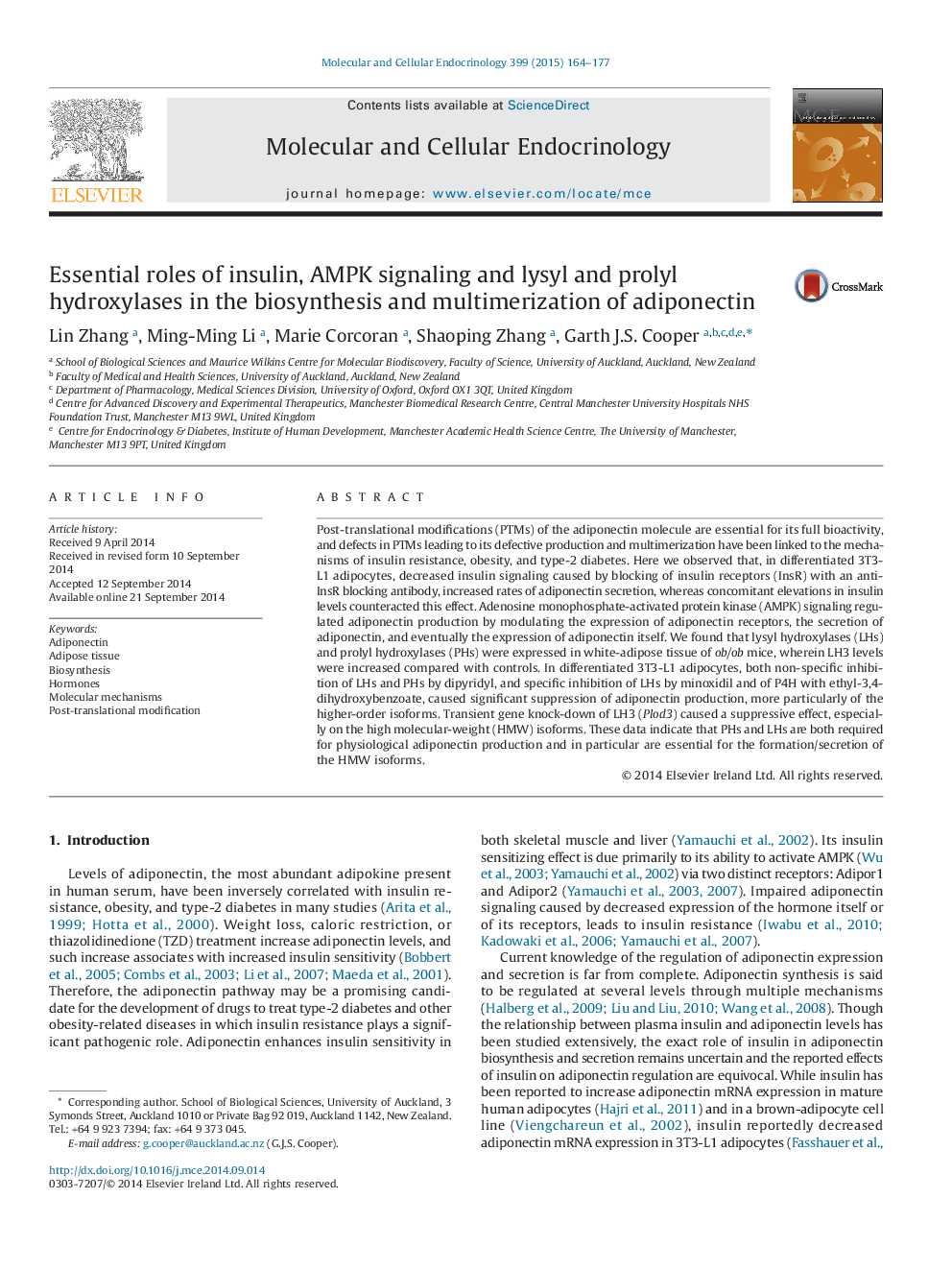| Article ID | Journal | Published Year | Pages | File Type |
|---|---|---|---|---|
| 2195960 | Molecular and Cellular Endocrinology | 2015 | 14 Pages |
•Decreased insulin signaling stimulates adiponectin production, whereas insulin itself potently suppresses this process.•Adiponectin negatively regulates its own production via binding to its receptors in WAT, thereby activating AMPK signalling.•Lysyl and prolyl hydroxylases are both required for physiological adiponectin production and multimerization.
Post-translational modifications (PTMs) of the adiponectin molecule are essential for its full bioactivity, and defects in PTMs leading to its defective production and multimerization have been linked to the mechanisms of insulin resistance, obesity, and type-2 diabetes. Here we observed that, in differentiated 3T3-L1 adipocytes, decreased insulin signaling caused by blocking of insulin receptors (InsR) with an anti-InsR blocking antibody, increased rates of adiponectin secretion, whereas concomitant elevations in insulin levels counteracted this effect. Adenosine monophosphate-activated protein kinase (AMPK) signaling regulated adiponectin production by modulating the expression of adiponectin receptors, the secretion of adiponectin, and eventually the expression of adiponectin itself. We found that lysyl hydroxylases (LHs) and prolyl hydroxylases (PHs) were expressed in white-adipose tissue of ob/ob mice, wherein LH3 levels were increased compared with controls. In differentiated 3T3-L1 adipocytes, both non-specific inhibition of LHs and PHs by dipyridyl, and specific inhibition of LHs by minoxidil and of P4H with ethyl-3,4-dihydroxybenzoate, caused significant suppression of adiponectin production, more particularly of the higher-order isoforms. Transient gene knock-down of LH3 (Plod3) caused a suppressive effect, especially on the high molecular-weight (HMW) isoforms. These data indicate that PHs and LHs are both required for physiological adiponectin production and in particular are essential for the formation/secretion of the HMW isoforms.
